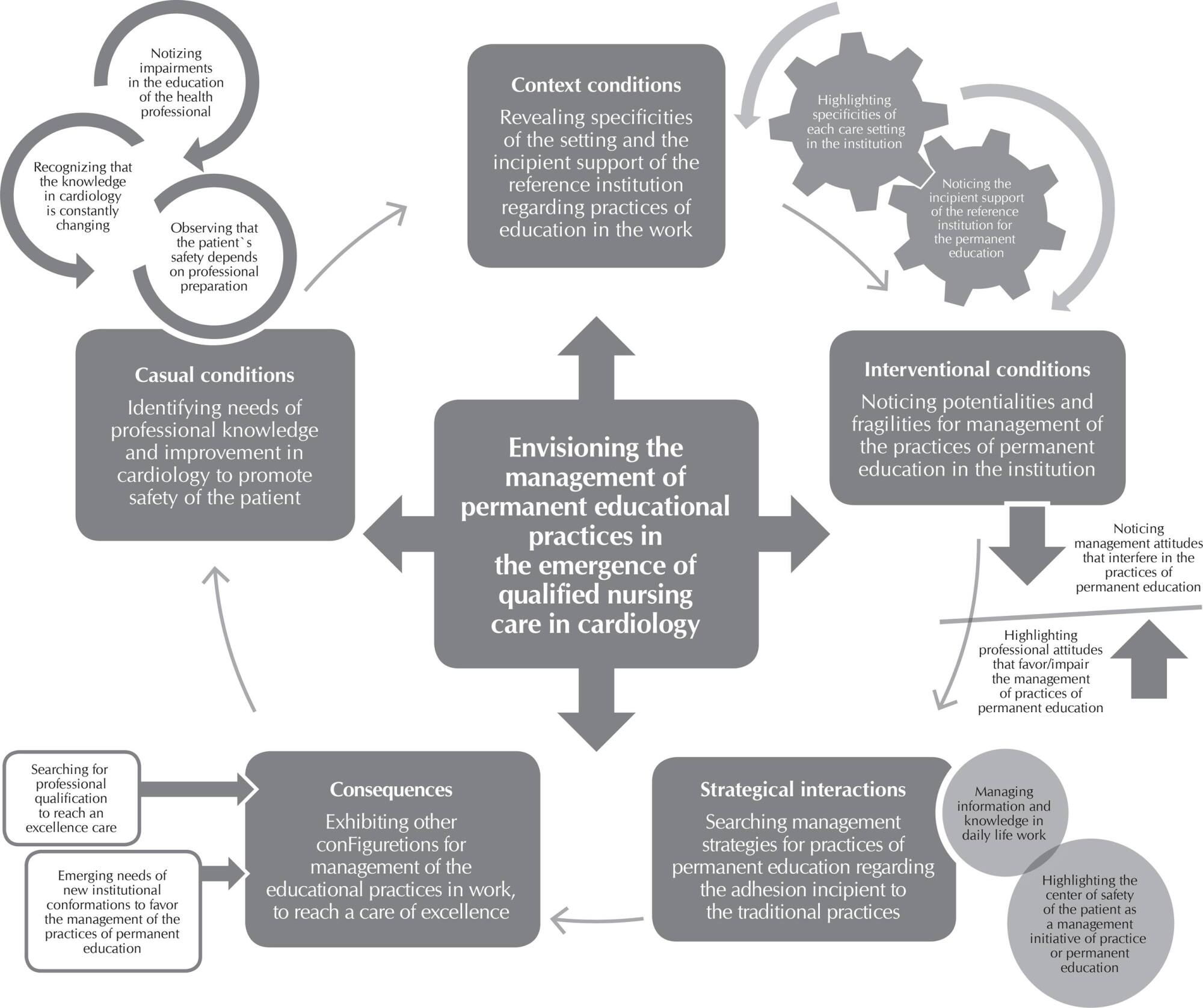-
RESEARCH
Permanent education in the vaccination room: what is the reality?
Revista Brasileira de Enfermagem. 2018;71(suppl 1):668-676
01-01-2018
Abstract
RESEARCHPermanent education in the vaccination room: what is the reality?
Revista Brasileira de Enfermagem. 2018;71(suppl 1):668-676
01-01-2018DOI 10.1590/0034-7167-2017-0560
Views0See moreABSTRACT
Objective:
To understand, from the perspective of the professional, the Permanent Education (PE) in the vaccination room in its real context.
Method:
Multiple holistic-qualitative case studies, based on Maffesoli’s Interpretive Sociology with 56 participants from four microregions of the Western Extended Region of Minas Gerais State.
Results:
They present PE as infrequent and insufficient. They denote that the practical-theoretical experience with vaccine contributes to the work; the search for knowledge, starting from the professional itself; and the professional training fails to perform in the vaccination room.
Final considerations:
The notions of PE are linked to the daily needs of individuals and services, with indication of being interactive, periodic, in specific and non-global issues for better assimilation. Obstacles to the non-implementation of PEH are realized by the workload associated with insufficient human resources, the distance of the nurses from the vaccination room and the lack of support from the higher levels.
-
PESQUISA
Managing educational practices for qualified nursing care in cardiology
Revista Brasileira de Enfermagem. 2016;69(5):872-880
01-01-2016
Abstract
PESQUISAManaging educational practices for qualified nursing care in cardiology
Revista Brasileira de Enfermagem. 2016;69(5):872-880
01-01-2016DOI 10.1590/0034-7167-2015-0032
Views0See moreABSTRACT
Objective:
to understand significances attributed by nurses who manage nursing care to the individual affected by cardiovascular disease to relations, interactions and associations of the educational practices in a cardiovascular reference hospital. To elaborate a theoretical explanatory model based on significances attributed in the light of the complex thinking.
Method:
qualitative study, which used Theory Based on Data (TBD) as methodological reference. Twenty-two professionals of nursing participated in the study.
Results:
the results indicate need of professional qualification to ensure the safety of patients, institutional support for the realization of educational practices, attitude of openness and availability of dialogue of the health professionals and other institutional conformations for the workers' development.
Conclusion:
the study presents a new space for the nurse's action that can be used to qualify and optimize the nursing practice, as it provides visibility to management and care in health institutions.




